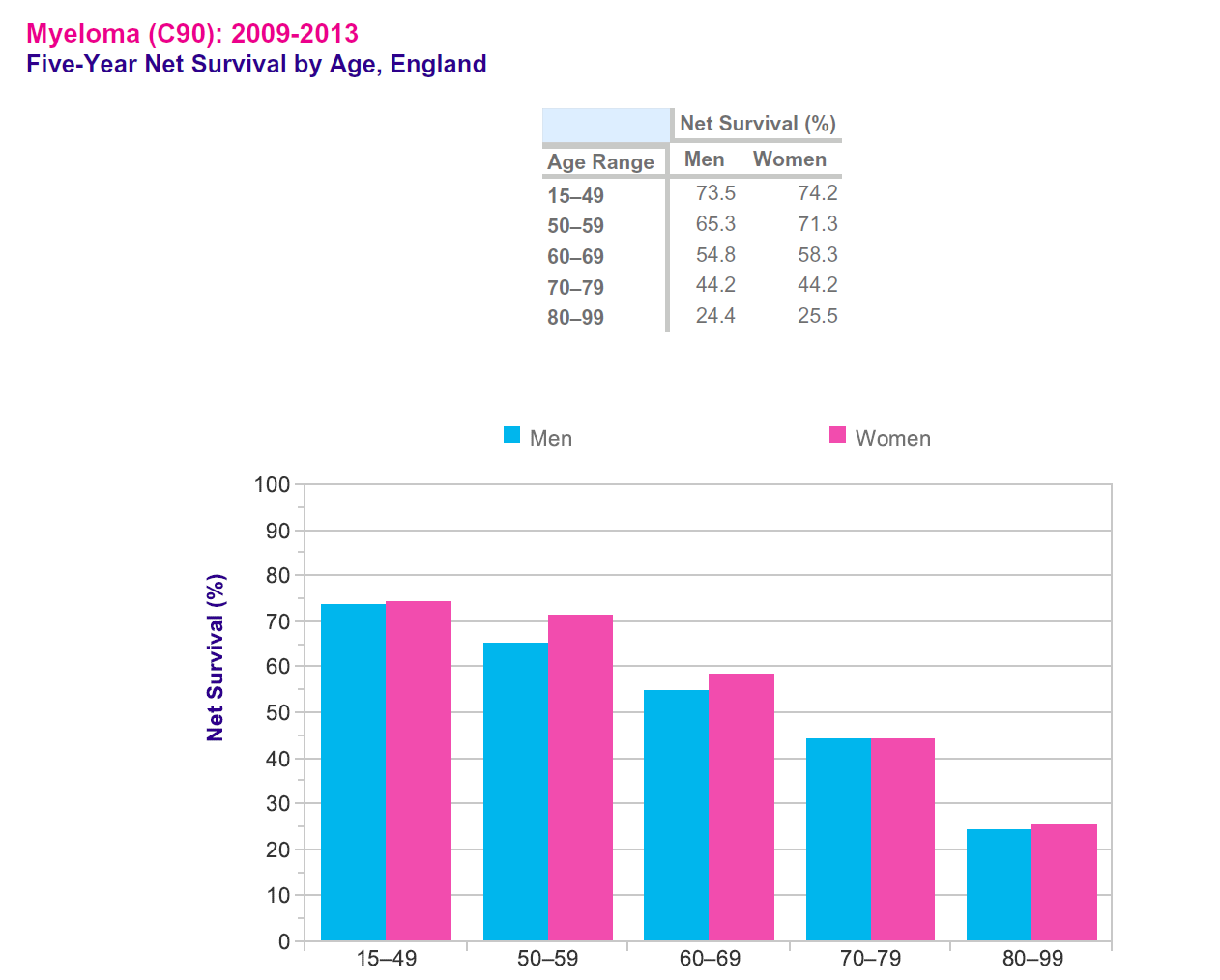Prognosis of multiple myeloma
The natural history of myeloma is heterogeneous and the survival times may vary from few weeks to more than 20 years. The median survival for multiple myeloma patients is;
- stage I - 62 months
- stage II - 45 months
- stage III - 29 months (1).
Outcome in myeloma has been shown to be dependent on certain cytogenetic and molecular genetic abnormalities (1)
- t(4;14), t(14;16) and deletion 17p, demonstrated by fluorescence in situ hybridisation (FISH) are generally accepted to be associated with an adverse outcome in myeloma (1)
Poor prognostic indicators are high paraprotein spikes, renal failure, hypercalcaemia, or extensive bone disease.
Two sub-groups are recognised:
- low tumour burden:
- criteria: IgG spike < 5g /dl; solitary lytic bone lesion; no evidence of severe anaemia, hypercalcaemia, or renal failure
- median survival: 5-6 years
- high tumour burden:
- criteria: IgG spike > 7g/dl; haematocrit < 25%; calcium > 12 mg/dl; or > 3 lytic bone lesions;
- median survival: 1 year
- Almost 4 in 10 (37.8%) people diagnosed with myeloma in the UK survive their disease for ten years or more, it is predicted (2018).
- Myeloma ten-year survival in the UK is similar in females and males (2018).
- More than 8 in 10 (82.5%) females in the UK diagnosed with myeloma aged 15-44 survive their disease for ten years or more, compared with around 1 in 5 (20.6%) females diagnosed aged 75-99 (2018).
- Around 3 in 4 (73.8%) men in the UK diagnosed with myeloma aged 15-44 survive their disease for ten years or more, compared with 1 in 5 (20.2%) men diagnosed aged 75-99 (2018).
Myeloma survival is improving and has quadrupled in the last 40 years in the UK. In the 1970s, around 5 in 100 people diagnosed with myeloma survived their disease beyond ten years, now it's a third.
- older myeloma patients may be in poorer general health, so considered ineligible for transplants and unable to tolerate strong or sustained chemotherapy, which may explain their lower survival

Reference:
- Sive, J., Cuthill, K., Hunter, H., Kazmi, M., Pratt, G., Smith, D. and (2021), Guidelines on the diagnosis, investigation and initial treatment of myeloma: a British Society for Haematology/UK Myeloma Forum Guideline. Br. J. Haematol., 193: 245-268.
- CRUK. Myeloma statistics
Related pages
Create an account to add page annotations
Annotations allow you to add information to this page that would be handy to have on hand during a consultation. E.g. a website or number. This information will always show when you visit this page.